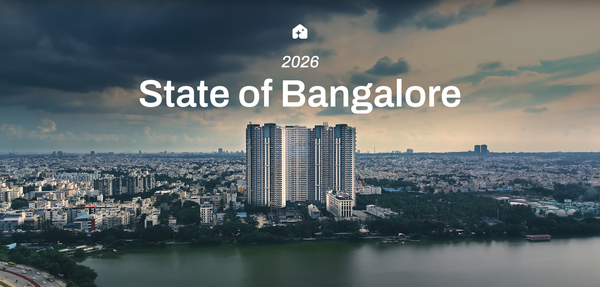Buying an under-construction property in Bengaluru often feels like a smart move. You lock in at today’s price, choose your preferred unit and wait for possession. But what if life plans change and you want to sell or transfer your booking before the apartment is registered in your name? That’s when you’ll encounter something called a property transfer fee.
Most buyers don’t think about this charge until they’re caught by surprise. Transfer fees are among the least understood costs in real estate, yet they can directly affect how easily you exit or resell your property.
In this blog, we’ll break down how transfer fees work in Bengaluru, why developers charge them and the things every buyer should keep in mind before planning a resale.
What Are Property Transfer Fees?
When you buy an under-construction apartment, your name is recorded as the first allottee in the builder’s records. But if you want to sell or transfer that booking before the Sale Deed is registered, the builder doesn’t simply allow you to hand it over. Instead, they charge something called a transfer fee (also known as an assignment fee or nomination fee).
In simple words, transfer fees are the builder’s approval charges for changing the buyer’s name during construction. It’s not the same as stamp duty or registration charges (which are government taxes). Transfer fees are contractual charges set by the developer and the amount is usually mentioned in your Agreement for Sale or Allotment Letter.
The way builders calculate these fees can vary:
- Per square foot basis - e.g. ₹150-₹500 per sq. ft. of the unit’s area.
- Percentage of agreement value - typically around 1–2% of the property cost.
- Flat administrative fee - a fixed lump sum, regardless of size or cost.
GST is almost always added on top, so the final outflow may be higher than expected.
Why Do Developers Charge Property Transfer Fees?
From a buyer’s point of view, transfer fees can feel like an extra, unfair cost. But if you ask developers, they’ll say it serves a purpose. Here’s why they insist on charging it:
- Covering admin work - Every transfer means fresh paperwork, new agreements, updating buyer records and sometimes even dealing with banks. The fee is positioned as a way to cover these costs.
- Discouraging speculation - Builders want to keep projects stable. If transfers were free, investors might flip units multiple times before completion. Charging a fee slows down speculative buying and selling.
- Extra revenue during construction - It also adds to the builder’s income while the project is still under development.
- Protecting their pricing - Developers don’t want resales at lower rates competing with their unsold stock. Transfer fees help them keep resale prices closer to ongoing launch prices.
When Can a Property Transfer Actually Happen in Bengaluru?
One of the most common questions buyers ask is: “At what stage can I transfer my booking to someone else?” The answer depends on the developer’s rules but here’s what we’ve seen in most Bengaluru projects between 2022 and 2025:
- Before registration only - Once the sale deed is registered, the developer steps out of the picture. Any resale after that is a direct owner-to-buyer transaction, without transfer fees.
- After a minimum payment stage - Builders usually allow transfers only after you’ve signed the Agreement for Sale, handed over post-dated cheques and cleared at least 3-5 instalments.
- All dues cleared - If you have any pending payments (including late fees), the transfer won’t move forward. In case you’ve taken a home loan, your bank’s No Objection Certificate (NOC) is also mandatory.
- Developer’s consent - Every transfer needs written approval from the builder. Some agreements even restrict transfers completely until handover, so always read your clause carefully.
Pros and Cons of Property Transfer Fees
Like most things in real estate, transfer fees come with their upsides and downsides. Here’s a quick breakdown for Bengaluru homebuyers:
Pros for Buyers
- Flexibility when plans change - Life happens. Whether you’re relocating for work or facing unexpected financial needs, being able to transfer your booking gives you an exit route.
- Access to older pricing - Incoming buyers can sometimes snag a unit at a lower price than current market rates, which can be a win for both parties.
Cons for Buyers
- High costs - Depending on the size and value of your home, transfer fees can run into lakhs of rupees.
- GST adds extra burden - The tax on top of the transfer fee can make the cost significantly higher.
- Limited flexibility - Some agreements either delay transfers or prohibit them altogether until possession, which can restrict your options.
- Extra coordination - Transfers involve the developer and in the case of home loans, banks. This coordination can slow down the process and make it more cumbersome.
How Do Buyers Handle Reselling Their Property in Bengaluru?
If you’re thinking of reselling an under-construction apartment, it’s important to plan carefully. Here’s a step-by-step guide to make the process smoother:
- Read your Agreement for Sale carefully – Look for sections like “Assignment” or “Nomination” to understand if transfers are allowed and under what conditions.
- Check with the developer’s CRM team – They can give you the exact transfer fee, GST rate and any instalment milestones you must meet before a transfer is approved.
- Clear all dues – Developers usually won’t issue a No Objection Certificate (NOC) unless all pending payments, including interest or late fees are settled.
- Get your lender’s approval – If you have a home loan on the property, bank NOC is mandatory for the transfer.
- Sign a proper assignment deed – Ideally, this should be a tri-partite agreement involving you (the original buyer), the incoming buyer and the developer, ensuring all parties are legally protected.
The Bottom Line
Transfer fees have become a standard part of Bengaluru’s real estate scene. For buyers, they offer flexibility if plans change but they also add a significant cost when reselling an under-construction property. For developers, these fees act as both a control mechanism and an additional revenue source.
The smart approach for homebuyers is to check your Agreement for Sale upfront, budget for any transfer fees and plan resales carefully, so you’re never caught by surprise.
If you’re exploring resale options, Propsoch can make the process easier. Fill out our short resale buyer form, and our advisory team will start sharing the most relevant, verified listings tailored to your needs. You can also browse our live resale inventory, covering all major micro-markets across Bangalore, so you can find a home that fits both your preferences and budget.
- Resale Buyer Form: Submit here
- Resale Inventory: Browse listings
With Propsoch by your side, you get expert guidance, verified listings and personalized options across Bangalore, making it easier to find a home that suits both your lifestyle and your budget.
FAQs on Property Transfer Fees in Bengaluru
1. Are transfer fees legal in Bengaluru?
Yes. Transfer fees are contractual charges mentioned in your Agreement for Sale. They’re not government levies like stamp duty or registration fees but they become binding once you sign the agreement.
2. How much do transfer fees usually cost?
Fees typically range from ₹150 to ₹500 per sq.ft or 1–2% of the agreement value, depending on the developer and the project. GST is usually added on top.
3. Can transfer fees be waived?
In rare cases, developers may waive or reduce the fee as part of promotions, loyalty benefits or if the transfer is to a close family member. Always get such waivers in writing to avoid disputes later.
4. What happens if I don’t pay the transfer fee?
If the fee isn’t paid, the developer can refuse to issue a No Objection Certificate (NOC). Without this, the assignment or resale is not legally valid.
5. Do transfer fees apply after registration?
No. Once the Sale Deed is registered, any resale is treated as a regular property transaction. At that stage, only government stamp duty and registration charges apply, the developer’s transfer fee no longer matters.









